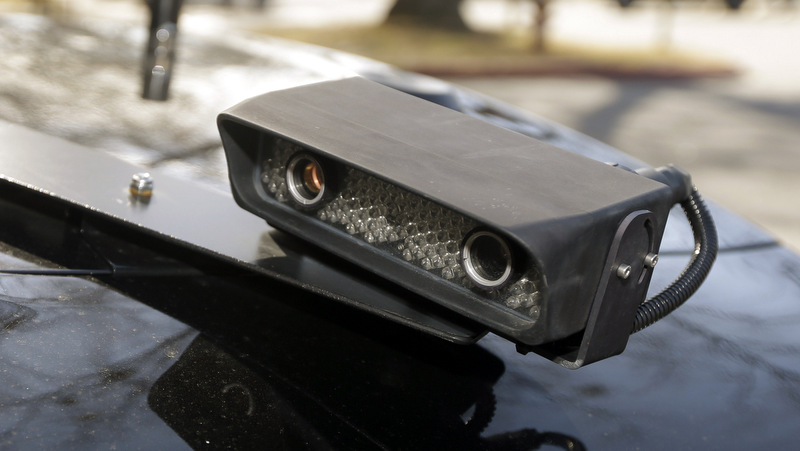
The federal government is seeking a private company with the capacity to build a national tracking system for all license plates issued in the U.S. that would enable law enforcement agencies to monitor people wanted in connection with crimes.
The Department of Homeland Security would be the primary network to which mass amounts of information could be fed from license plate-reading devices used by police at municipal, county, and state-level agencies, a vendor solicitation by DHS states.
Officials claim this would be an effective new tool for tracking potential terrorists or fugitive illegal immigrants. Privacy advocates, however, interpret the move as another way for federal agencies to gain information about Americans without their permission.
“When you travel around it’s really nobody’s business if you’re an innocent person, not a suspect,” Jim Harper, of the Cato Institute in Washington, told Cox Media Group on Wednesday. “Free people shouldn’t have to have their movements surveilled in public. It is a surveillance system and the technology is moving faster — government is moving faster — than the need.”
The system’s database could potentially store more than 1 billion records that could be shared with any sheriff’s office or city police department. This gives rise to concerns that the movements of citizens not suspected of crimes could also be scrutinized.
“The database could only be accessed in conjunction with ongoing criminal investigations or to locate wanted individuals,” a spokesman for DHS’ Immigration and Customs Enforcement agency told The Washington Post.
All a police officer would need to do is upload a photo of a license plate into the database. Within minutes, he or she could find out whether the plate identifies the vehicle as a target or not in the system.
American Civil Liberties Union affiliates in 38 states and Washington have sent public records act requests to almost 600 local and state police departments, as well as other state and federal agencies, to obtain information on how these agencies already use license plate readers across the country.
“This is yet another example of the government’s appetite for tools of mass surveillance,” said Catherine Crump, staff attorney for the ACLU, which objected last year to license plate reader technology that was reportedly photographing thousands of license plates per minute.
If the government continues with its plans for such tracking infrastructure, anyone’s whereabouts on any given day could potentially be logged and stored as data.
“The logic of license-plate monitoring is similar to that used by NSA officials who insist on collecting data on the phone calls of millions in hopes of catching a few bad guys,” The Atlantic pointed out in an editorial. “If the federal government has its way, the car trips of millions of innocents will be collected and stored in a database. Drive somewhere in 2014, and 10 years from now a bureaucrat could look up where you went on a given Tuesday.”
Federal surveillance like this would signal the death of the freedom of the open highway in America. Sometimes we simply don’t want anyone to know where we are, even if it’s only so we can enjoy a couple of quiet days in a remote area.

